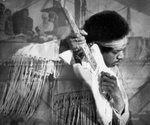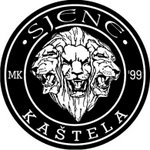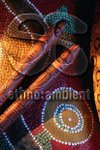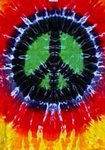
bossa/jazz/blues band from Split, Croatia
Partet - a non-specified number (par --> couple, few) of people playing together (quartet, quintet, fewtet, coupletet --> Partet). A band from Split, Croatia which performs wide stylistic spectrum of music - jazz, blues, bossa nova, country. The first concert was held in the Puppet Theater in Split 26th 12. 2006. Since then the band regularly performed in various combinations. In addition to the musicians who play today, Partet has cooperated also with Nilla Axelsson - violin, Zvonimir Matić - bass guitar, a keyboard player Darko Aljinović and Sinisa Kovacic - Mr. Chemistry on the alto saxophone.
Band members:
...Jasenka Markov Anterich (vocal, flute)
Graduated her flute studies in 2003. in the class of prof. Ana Domančić - Krstulović at the Arts Academy University of Split. In 2008 completed training for the Baroque flute (traverso) at the Scuola di Musica Antica di Venezia by prof. Stefano Bet. She engaged in singing in "The Skelligs", where she also played tin whistle and flute. She is a member of jazz band SplitMinders.
...Goran Cetinich - Kocha (guitar, vocal)
He plays acoustic guitar by selflearned special fingerpicking style. Since year 2000 played with band "3C", between years 2004 & 2006 he played with band Skelligs (traditional Irish Music). He is the active member of the cult band Otprilike Ovako and has been colaborated with many other bands (Black Cat Bone, Little Pigeons Forhill Blues, Lokva...).
...Ivan Bozicevich (piano)
Composer, arranger, organist, jazz musician. After initial piano studies, joins the composition class of A. Obradović at the Belgrade Faculty of Music. Graduates in 1984, earns a Master's degree in 1989. Until 2001 occupies a teaching post for Harmony, Counterpoint and Analysis there and at the Academy of Arts in Novi Sad. Since December 2001 lives in Split, Croatia, as a free-lance artist.
...Nenad Bego (bass)
Born on May 13, 1957, in Split, Croatia. His musical education began at the age of 7, and his career as a professional musician started at the age of 17, playing the bass guitar and double bass with the groups "Delfini", "Anima Singers", "Split Quintet" and "Pro Arte".
While working at the Faculty of Electrical Engineering in the early 80s, Nenad combined his interests in the electronics and music, at that time he began working as a studio producer ("Osmi putnik"), as well as a studio musician. During the 80s he played with the bands "Tutti Frutti", "Zivi zid", "Kineski zid" and "Josko Banov orchestra"
In the end of the 80s his spiritual aspirations shifted him abroad. At that period Nenad had intensively cooperated with "Gauranga Bhajan Band", accepted the spiritual name Narasimhavapu das, and took brahmana initiation in Mayapur, India in 1992. During the war in Croatia, he founded the Vedic Center in Split. He also became a member of the Croatian Navy Orchestra, until its partial disbandance after the war.
During the second half of the 90s Nenad continued his concert activities and recorded as a member of backing bands for Tedi Spalato, Zorica Kondja, Meri Cetinic, etc. In the period after 2000, he opened his own studio, and played as backing musician for Giulliano, Marjan Ban and Lvky.
Today Nenad plays in bands "SplitMinders", "The Aliens" and “Partet”. The rest of the time he composes his own music. During his career, he took part in approximately 1000 pop-rock, jazz and classical concerts, innumerous gigs, and recorded more than 1000 minutes of published music.
...Andrej Petkovich (drums)
Drummer and percussionist. Andy started playing drums in the first half of the 1970s. While he played with the first psichodelic band in Split called "The X band", he also played gospel in a church band. In the second part of the 1970s he lived in Slovenia and played with jazz-rock bands called "Izvir", "Jutro" and "Predmestje" and was accompanying the popular Slovenian singer Neca Falk. After returning to Split he had collaborated with jazz-rock bands Savannah Expression, The Flintstones and with jazz combos SplitMinders and Black Coffee.
LINK: h!!p://www.megaupload.com/?d=NKE5BMAG
EAC - CUE - LOG - FLAC
Can you people give some feedback after listening?

















